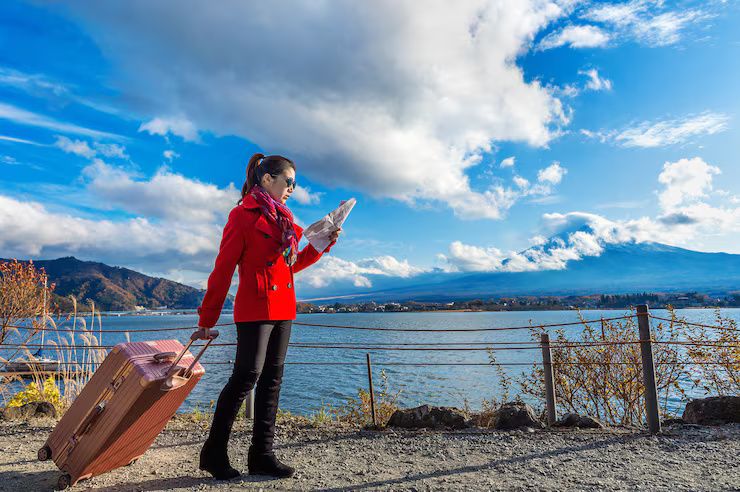Travel is often seen as exciting and enriching, but it can also become overwhelming. Missed flights, visa issues, lost baggage, long lines, and confusing documentation are just a few common stressors. The concept of stress-free travel focuses on simplifying your journey through effective planning, smart use of tools, and understanding legal and procedural requirements.
This guide offers a practical look into how anyone—from first-time travelers to seasoned flyers—can reduce anxiety and enhance comfort throughout their trip.

Importance – Who benefits and what problems it solves
Travel stress impacts nearly every traveler, regardless of destination or purpose. Whether you're flying for business, vacationing with family, or studying abroad, a smoother travel experience ensures:
-
Better time management
-
Improved physical and mental well-being
-
Cost savings through better planning
-
Fewer delays and disruptions
-
Increased safety and preparedness
This topic matters more now due to post-pandemic travel changes, rising airfare costs, and digital systems replacing manual travel processes.
Recent Updates – Trends and news that affect your travel experience
The past year (2024–2025) has seen several notable developments that make stress-free travel more achievable:
-
Digital ID integration: Airports in the U.S., UK, and parts of Asia now allow travelers to verify identity through biometric scanning and app-based documentation.
-
AI-powered travel assistants: Google, Hopper, and TripIt launched AI chat features that auto-suggest packing lists, check-in reminders, and gate alerts.
-
Flight disruption support: Airlines now offer real-time flight rebooking via mobile apps, reducing airport line stress.
-
Travel insurance integration: Many booking platforms now suggest insurance during checkout, helping travelers make quicker decisions about coverage.
-
Eco-travel planning: Apps like “Green Travel” rate your itinerary for carbon footprint, helping eco-conscious travelers plan smarter.
Laws or Policies – Rules that affect smoother travel
Understanding local and international travel regulations can help avoid last-minute surprises. Here are some key travel-related policies you should know:
-
Passport validity rules: Many countries (like the Schengen region) require passports to be valid for at least 6 months beyond your travel date.
-
Electronic travel authorization (ETA): Countries such as Canada, Australia, and the UK now require ETAs, even for short visits.
-
Flight compensation laws: The EU and some U.S. states mandate passenger compensation for significant flight delays or cancellations.
-
Digital customs declarations: In countries like Singapore and Australia, customs forms must now be submitted electronically before arrival.
-
Travel health requirements: Though COVID-19 restrictions have eased, some destinations still ask for proof of vaccination or health insurance coverage.
It’s best to double-check government travel portals before departure to ensure compliance.
Tools and Resources – Best apps and platforms to make travel easier
Planning tools can drastically reduce travel-related anxiety. Here are some high-value apps and resources:
Planning and Organization
-
TripIt – Creates master itineraries by scanning your email confirmations.
-
Google Travel – Tracks your bookings, suggests hotels, and checks prices.
-
Rome2Rio – Offers transportation route suggestions between cities or countries.
-
PackPoint – Custom packing lists based on your destination, weather, and trip type.
Real-Time Support
-
FlightAware – Live flight tracking and delay alerts.
-
AirHelp – Helps you claim flight delay compensation.
-
LoungeBuddy – Find and book airport lounge access.
-
Priority Pass – Paid access to 1,300+ airport lounges worldwide.
Security and Compliance
-
Smart Traveler (U.S. State Dept.) – Safety updates and embassy locator.
-
VisaHQ or iVisa – Track visa requirements by nationality.
-
My TSA (U.S. travelers) – Check wait times, security rules, and what you can carry.
FAQs – Common questions about reducing travel stress
Q1. What is the best time to book flights for lower stress and better prices?
Generally, booking 6–8 weeks in advance offers the best balance of price and availability. Avoid major holiday rush periods unless absolutely necessary.
Q2. How can I manage jet lag better?
Try adjusting your sleep schedule a few days before your trip, stay hydrated, and avoid alcohol and caffeine on the flight.
Q3. Are travel insurance policies worth it?
Yes. They cover unexpected cancellations, medical emergencies, lost luggage, and more. Always compare plans based on your destination and duration.
Q4. What are common airport mistakes that increase stress?
Arriving late, packing restricted items, not printing backup copies of documents, and ignoring visa rules are common and preventable errors.
Q5. Is traveling light really helpful?
Absolutely. Carrying less luggage saves time at check-in and baggage claim, reduces fees, and makes moving between transit points easier.
Final thoughts
Stress-free travel is not about controlling every outcome but about minimizing risks through preparation, awareness, and using the right tools. With updated travel laws, AI-powered planning apps, and smarter documentation processes, traveling has become more manageable than ever.
Whether you're planning a weekend getaway or a long-term overseas stay, this guide provides a strong foundation to make your journeys smoother, more enjoyable, and less overwhelming.